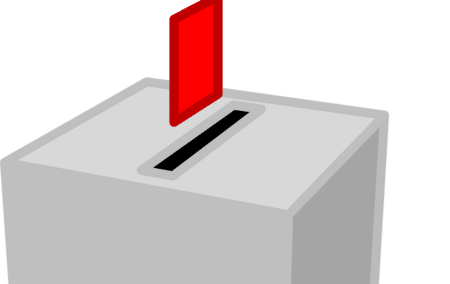Minister Nkosazana Dlamini-Zuma’s proclamation of 27 October as the date for the next municipal elections – despite no section of the Constitution or other legislation requiring her to do so – effectively shut the door to in-person voter registration before it opened, the Institute of Race Relations (IRR) said yesterday.
The Institute said that, in the absence of any subsequent remedy or departure from IEC precedent, ‘this violates the guarantee in Chapter 1 of the Constitution of “universal suffrage, a national common voters’ roll, [and] regular elections”’.
In a statement, the IRR noted: ‘The Electoral Commission (IEC) said in a statement yesterday that Dlamini-Zuma’s proclamation “has a number of implications for the Electoral Commission and the electoral programme”, and that the “immediate implication is that the voters’ roll for these elections closes at midnight on 3 August 2021”.’
The statement said: ‘That was last night. Today the IEC reiterated the point, while noting that its position is so fundamentally compromised that it may ask the Constitutional Court to deem it in violation of the Constitution, while also asking the Court to make such a finding in a way that has no practical significance.
‘Dlamini-Zuma claimed that her hand was forced in making the unconstitutional proclamation because the “IEC can’t … request for the postponement of an election that has not been proclaimed”. This is not true and is absurd, since the basis of the IEC’s appeal is not specific to a particular date, proclaimed or not, but rather arises from its supposed inability to hold elections before the constitutional deadline.’
The statement said: ‘Dlamini-Zuma has denied South Africans’ right to universal franchise, absent later remedy, and the IEC is attempting to deny regular elections – with no scientific basis offered to support its claim that February will be safe for elections while October is unmanageable. Each has undermined the Constitutional Court’s ability to rule in accordance with the Constitution, which is the supreme law, conjunctively wrecking the elections first and proposing to seek permission from the court later.’
The IRR said the IEC had ‘offered an overlong election timetable, with no apparent effort at hastening the process, as it previously promised it could do. Furthermore, by proclaiming the election for one day, Dlamini-Zuma has sabotaged attempts to spread the election out over multiple days to reduce Covid-19 threats under medical advice.’ Said IRR head of campaigns Gabriel Crouse: ‘Does this mean all hope of defending the democratic deadline is lost? Not at all. The ConCourt may find that this proclamation is unconstitutional and rescind it, allowing in-person registration at a later date, or find some other remedy consistent with the constitutional deadline. Attempts to forestall the ConCourt have been attempted and failed before.’
He added: ‘At this time of crisis, Dlamini-Zuma has pulverised the ConCourt’s left kneecap by denying the franchise. The IEC has pulverized the ConCourt’s right kneecap by refusing to appeal to the court speedily, refusing to announce its minimum timetable, and refusing on unscientific grounds to do its duty to hold elections. With two kneecaps broken and the weight of illegal descent on its back how does anyone expect the ConCourt to run properly?’
Crouse said friends of the court ‘will be needed to address not only the spurious IEC arguments for postponing the election, but also to challenge the Minister’s untimely proclamation and to remedy its voter-suppression effect’.
Join the IRR’s campaign to defend your right to vote, here.
[Image: Clker-Free-Vector-Images from Pixabay]

